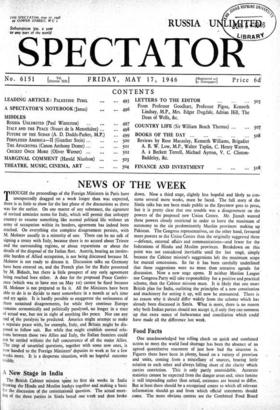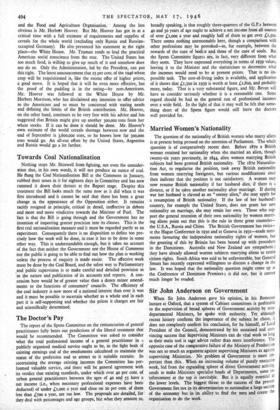Food Facts
One unacknowledged but telling check on quick and combined action to meet the world food shortage has been the absence of an agreed quantitative statement of just how bad the situation is. Figures there have been in plenty, based on a variety of premises and units, coming from a miscellany of sources, bearing little relation to each other and always falling short of the clarity which carries conviction. This is only partly unavoidable. Accurate statistics cannot be expected from the danger areas and, since famine is still impending rather than actual, estimates are bound to differ. But at least there should be a recognised centre to which all relevant information should• go and from which official statements should come. The more obvious centres are the Combined Food Board and the Food and Agriculture Organisation. Among the less obvious is Mr. Herbert Hoover. But Mr. Hoover has got in at a critical time with a full estimate of requirements and supplies of cereals for the whole world (excluding only Russia and Russian- occupied Germany). He also presented his statement at the right place—the White House. Mr. Truman tends to lead the practical American social conscience from the rear. The United States has too much food, is willing to give up much of it and somehow does not do so. Only the Administration, led by the President, can put this right. The latest announcement that 25 per cent. of the 1946 wheat crop will be requisitioned is, like the recent offer of higher prices, a good move. It is hoped that it will be even more effective, but the proof of the pudding is in the eating—by non-Americans. Mr. Hoover was followed at the White House by Mr. Herbert Morrison, who has disclaimed any intention to offer advice to the Americans and so must be concerned with stating needs and defining the limits of the British contribution. Mr. Hoover, on the other hand, continues to be very free with his advice and has suggested that Britain might give up another 300,000 tons from her wheat stocks. If it can be done it should be done. Mr. Hoover's own estimate of the world cereals shortage between now and the end of September is 3,600,000 tons, so he knows how far 300,000 tons would go. An all-out effort by the United States, Argentina and Russia would go a lot farther.































